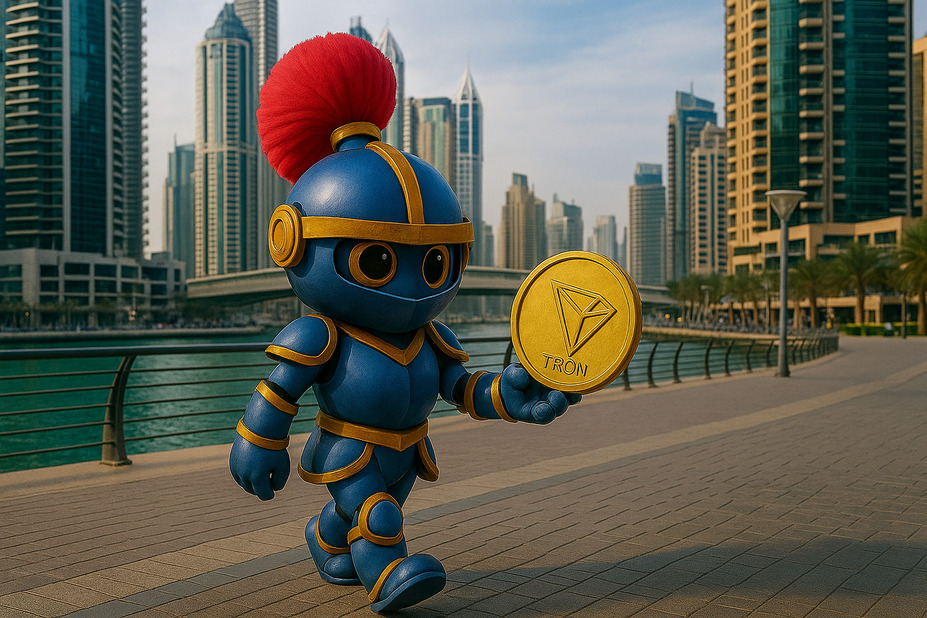Your guide to secure Toncoin storage with IronWallet

Looking for a safe haven for your Toncoin? IronWallet offers robust, privacy-protected storage for your digital assets, ensuring high security without sacrificing ease of use. It’s designed to be a reliable and secure option for all your Toncoin management needs.
What exactly is Toncoin?
Toncoin (TON) is the cryptocurrency used on “The Open Network” (TON), a powerful blockchain. It all started in 2018 when Telegram first came up with the idea of a “Telegram Open Network.” However, Telegram later decided not to work on the project, which was then taken over by the TON Foundation. They changed its name to “The Open Network” and have been working hard on developing it ever since.
The TON platform aims to deliver fast, transparent, and secure payment services with low fees, and to work seamlessly with other applications. The idea behind TON is to build a complete decentralised ecosystem. This includes decentralised storage, various services, an anonymous network, a domain name system (similar to traditional DNS), and an instant payment platform – all designed to be fast and affordable.
Toncoin is the main currency in this network. People use TON to buy, send and store money, pay for transactions and even check that network transactions are valid. The network uses a proof-of-stake (PoS) consensus model, which is important for making sure it can handle a lot of users and is always reliable.
Creating your Toncoin wallet with IronWallet
Setting up your Toncoin wallet with IronWallet is a straightforward and quick process. You can do it directly from your mobile device, and crucially, it doesn’t require you to provide any personal information.
Here’s how to get started:
- Choose “Create new wallet.” This is your first step into secure Toncoin management.
- Receive your unique seed phrase. This seed phrase is paramount – it’s your only key to accessing your wallet. It’s absolutely vital to write it down and store it in a very secure, offline location. If you lose this seed phrase, your funds become inaccessible, as it cannot be recovered.
- Set a PIN for quick device access. This PIN allows for convenient, immediate access to your wallet on your specific device.
Once these steps are complete, you’re ready to fully utilize the app to send and receive Toncoin! You can easily acquire Toncoin using various methods like a credit/debit card, Google Pay, Apple Pay, or by swapping it with other cryptocurrencies you already own.
Why choose IronWallet for your Toncoin?
Whether your goal is long-term secure storage or daily transactions, IronWallet is packed with features designed to meet your specific needs:
- Effortless Toncoin purchase: Buy Toncoin directly using major credit/debit cards (MasterCard, Visa, Maestro), Apple Pay, Google Pay, Samsung Pay, or even a bank transfer.
- Send Toncoin in your preferred currency: Enjoy instant currency conversion when sending Toncoin, making international transactions straightforward. Local currency exchange rates apply.
- Rapid crypto funding: Incoming funds are processed incredibly fast, with an average reception time of just 5 seconds.
- Industry-standard account derivation: IronWallet adheres to the BIP44 standard for account derivation, ensuring compatibility and security.
- Simplified toncoin payments: Make payments with ease by simply clicking on links or scanning QR codes.
Understanding wallet security: public vs. private keys
When you first dive into the world of cryptocurrency, you’ll encounter two fundamental concepts: public and private keys. Understanding these is crucial for safeguarding your assets.
- Public key (your address): Think of your public key as your bank account number. It’s an address that you can safely share with others so they can send you cryptocurrency. It’s public because knowing it only allows others to send you funds, not access them.
- Private key (your signature/password): This is the truly sensitive part. Your private key is a randomly generated number that acts as your digital signature. It’s essential for signing transactions and proving ownership of your funds, thereby protecting your assets from malicious actors. If your private key is compromised or lost, you lose access to your entire cryptocurrency wallet and its contents – you won’t be able to spend, withdraw, or transfer your assets.
To manage and secure these keys, you typically use either online (“hot”) or offline (“cold”) wallets.
Hot Wallets store your private keys on systems or devices that are connected to the internet. While highly convenient and easy to use, hot wallets come with significant drawbacks. They are more susceptible to cyberattacks and can be a prime target for hackers. Furthermore, with many hot wallets (especially those offered by crypto exchanges), the custody of your private keys is often entrusted to a third party. This means you don’t have complete control over your own funds.
Cold Wallets, on the other hand, prioritize security by storing private keys offline. Hardware wallets are a prime example of cold storage. Stealing private keys from a hardware wallet would typically require physical access to the device itself, along with the correct PIN or recovery phrase. With cold storage, you bypass the need to rely on third-party custodians, giving you full control over your assets.
IronWallet, while a software wallet, emphasizes self-custody and robust security practices to give users more control than typical exchange-based hot wallets, making it a strong choice for those seeking a balance of security and accessibility.
Wallet Comparison Table
To help you understand the landscape of crypto storage, here’s a quick comparison of different wallet types:
| Wallet Type | Key Custody | Security Level | Internet Connection | Best Use Case |
| Exchange Wallet | Third-party | Lower (online risks) | Always Connected | Frequent trading, small amounts, beginners |
| Software Wallet | User (self-custody) | Moderate to High | Often Connected | Regular use, balancing security/convenience |
| Hardware Wallet | User (self-custody) | Very High (offline) | Offline for keys | Long-term storage, large sums, maximum security |
Frequently asked questions about Toncoin & IronWallet
Q1: What exactly is Toncoin? A: Toncoin (TON) is the native cryptocurrency of “The Open Network” (TON), a decentralized layer-1 blockchain. It enables fast, secure, and affordable transactions and is integral to the broader TON ecosystem, which aims for decentralized storage, services, and an anonymous network.
Q2: Is Toncoin still connected to Telegram? A: While Toncoin was initially conceived by Telegram in 2018 as the “Telegram Open Network,” Telegram later abandoned the project. It was subsequently taken over and further developed by the TON Foundation, which rebranded it to “The Open Network.”
Q3: What is IronWallet? A: IronWallet is a secure software application designed for storing, sending and receiving Toncoin. It prioritizes high security and user privacy, allowing for wallet creation without personal information, and offers various features for managing your TON assets efficiently.
Q4: How do I create a Toncoin wallet using IronWallet? A: The process is simple: select “Create new wallet,” securely record your unique seed phrase (which is essential for recovery), and then set a PIN for quick access on your device. That’s it!
Q5: What is a seed phrase and why is it so important? A: A seed phrase is a unique sequence of words or characters that serves as your master key to access and recover your Toncoin wallet. It’s critically important because if you lose it, your funds cannot be retrieved, as IronWallet does not store or have access to this information.
Q6: How does IronWallet help ensure my Toncoin is secure? A: IronWallet emphasizes self-custody, meaning you control your private keys via your unique seed phrase. It operates without requiring personal information for wallet creation, and offers secure features like PIN protection for device access, making it a robust option for managing your Toncoin.
Q7: What’s the difference between a public and private key? A: A public key acts like your crypto address, which you can share with others to receive funds. A private key is a secret code that proves ownership of your funds and allows you to authorize transactions. Losing your private key means losing access to your funds.
Q8: Why is self-custody important in cryptocurrency? A: Self-custody means you—and only you—hold the private keys to your cryptocurrency. This gives you complete control over your assets, unlike custodial solutions (like many exchange wallets) where a third party holds your keys, which can expose you to risks like exchange hacks or frozen accounts.








